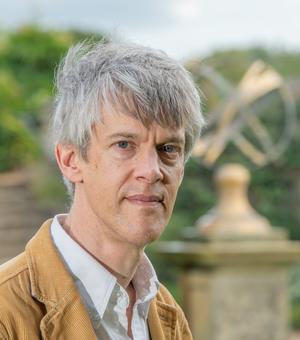Professor Christopher Bronk Ramsey
Research Interests
The application of physical sciences to archaeology and the environmental sciences and in particular in the use of radiocarbon isotope studies
Radiocarbon dating in Archaeology
As the former-director of the Oxford Radiocarbon Accelerator Unit, he was been involved in many different archaeological projects. These projects include those led from Oxford, and those that were collaborative with scholars elsewhere. His primary focus in recent years was been in the archaeology of the eastern Mediterranean (Aegean, Egypt and the Levant), in the Palaeolithic period (with Tom Higham), Anglo-Saxon England (with Helena Hamerow and the FeedSax team) and Amazonia (with Frank Mayle and the HERC team). His current focus in on the issues of chronology building for archaeological projects).
Quaternary chronology and Environmental Science
Radiocarbon dating (0-50ka) provides one of the main ways for dating the later Quaternary (0-2.5Ma) and in particular the dating of modern human expansion into Europe, Neanderthal extinction and faunal/human responses to the climate variability during the last glacial cycle. Much of his current research is directed to improving radiocarbon as a method for quaternary research. He is the chair of the international INTCAL committee that oversees the calibration of radiocarbon.
The use of numerical modeling methods in chronology
Over the last 20 years he has worked extensively on the application of Bayesian statistical methods to the study of chronology in both Archaeology and Quaternary environmental research. He has formulated a systematic approach to approaching chronological research, which is embedded in the widely used software package OxCal.
Development of Nuclear Instruments and Methods
Trained as a physicist, much of his early-career research was in the development of Accelerator Mass Spectrometry (AMS) techniques including the development of gas ion sources for AMS which allows the measurement of very small samples and a technique, GC-AMS with applications in the environmental and biological sciences. More recently he has been most concerned with the development of high-precision techniques and their applications to archaeological and environmental problems.
Links
Postgraduate teaching
Course lecturer in Chronology for the MSc in Archaeological Science.
I am happy to supervise on interdisciplinary topics (especially involving mathematical, physical or data sciences), applications of chronological modelling, and lessons from past climate change.
Current students
| Oxygen isotope dendrochronology in New Zealand Jennice Singh | DPhil Archaeological Science | Supervisor: Christopher Bronk Ramsey |
| Developing an Integrated Digital Platform for Chinese Archaeological Artefact Information Retrieval, Analysis, and Public Education Yan Tian | DPhil Archaeological Science | Supervisors: Christopher Bronk Ramsey and Anke Hein |
| Archaeology in the Information Age: theoretical and practical aspects of archaeological outreach in the past and present. Jakov Mlinarevic | DPhil Archaeology | Supervisors: David Griffiths and Christopher Bronk Ramsey |
| Understanding the Spatial-Temporal Trends of the Southern African Middle Stone Age Ruby-Anne Birin | DPhil Archaeological Science | Supervisors: Peter Mitchell and Christopher Bronk Ramsey |
| Applications of Computational and Spectral Imaging for Epigraphy Taylor Bennett | DPhil Archaeological Science | Supervisors: Christopher Bronk Ramsey and Charles Crowther |
Past students
| Climate and Chronology: Environmental Variability and the Archaeology of Marine Isotope Stage 3 Monty Ochocki (2023) ORA | Environmental Research (NERC DTP) - Archaeological Science | Supervisors: Thomas Higham and Christopher Bronk Ramsey |
| Understanding past abrupt climatic change through the reduction of chronological uncertainty Rebecca Kearney (2020) ORA | Environmental Research (NERC DTP) - Archaeological Science | Supervisors: Christopher Bronk Ramsey, Richard Staff and Paul Albert |
| Empirical and Theoretical Approaches to Assessing the Local Radiocarbon Marine Reservoir Effect Eduardo Queiroz Alves (2019) ORA | DPhil Archaeological Science | Supervisors: Christopher Bronk Ramsey and Kita Macario |
| Identifying and comparing meteorological and geographical influences on high resolution climate signals in the oxygen isotope values of different environmental archives Elisabeth Thompson (2018) ORA | DPhil Archaeological Science | Supervisor: Christopher Bronk Ramsey |
| Towards an Absolute Chronology of Early Mesopotamia: a Radiocarbon Perspective Maciej Wencel (2017) ORA | DPhil Archaeology | Supervisors: Christopher Bronk Ramsey and Michael Dee |
| Rehydroxylation Dating Vincent Hare (2016) ORA | DPhil Archaeological Science | Supervisor: Christopher Bronk Ramsey |
| New Insights into Old Problems: The Application of a Multidisciplinary Approach to the Study of Early Egyptian Ceramic Chronology, with a Focus on Luminescence Dating Amber Hood (2016) ORA | DPhil Archaeological Science | Supervisors: Christopher Bronk Ramsey and Jean-Luc Schwenninger |
| Bayesian Methods for the Construction of Robust Chronologies Sharen Lee (2012) ORA | DPhil Archaeological Science | Supervisor: Christopher Bronk Ramsey |
| Research on Radiocarbon Calibration Records, Focussing on New Measurements from Lake Suigetsu, Japan Richard Staff (2011) ORA | DPhil Archaeological Science | Supervisor: Christopher Bronk Ramsey |
| A High-Precision Radiocarbon Chronology for Ancient Egypt using Bayesian Statistical Modelling Michael Dee (2009) | DPhil Archaeological Science | Supervisor: Christopher Bronk Ramsey |
| New Developments in the Interpretation of Dendrochronology as Applied to Oak Building Timbers Daniel Miles (2006) | DPhil Archaeological Science | Supervisor: Christopher Bronk Ramsey |
Key words: chronology, digital archaeology, human evolution, resilience, policy, radiocarbon calibration, climate change, earlier prehistory, later prehistory, medieval, quaternary, Europe, Americas, E Asia, Egypt, Japan




